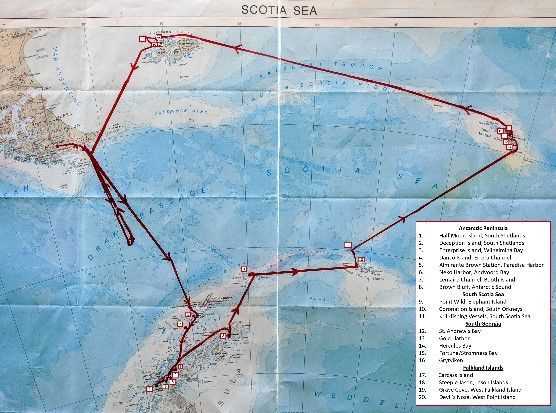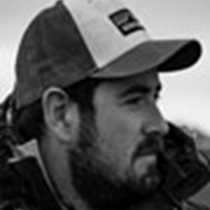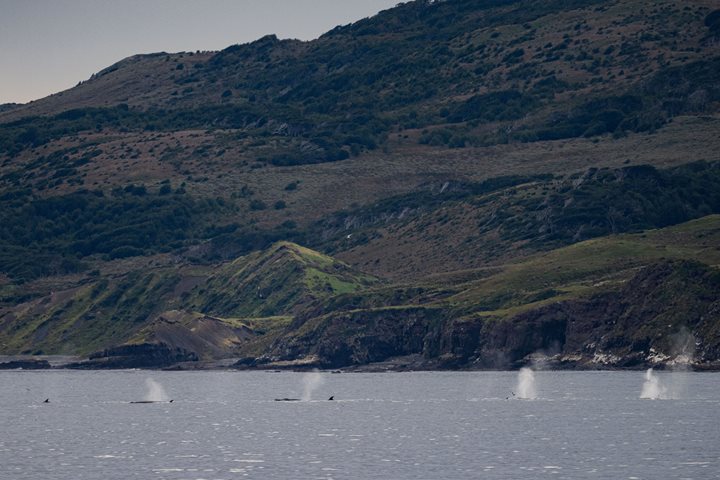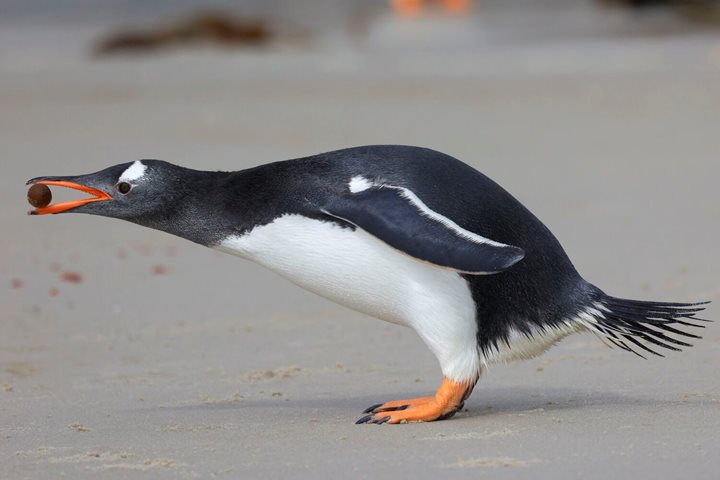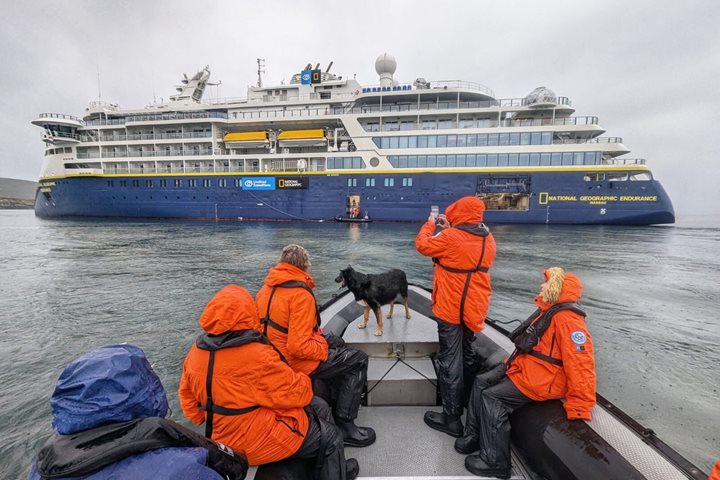Covering 5,155 miles, National Geographic Explorer has traversed the Scotia Arc, the tectonic intrusion that has delineated our path of travel these past three weeks. This huge area circumnavigates a vast swath of the Southern Ocean, one of the roughest patches of water on the planet. To put the journey in context, our voyage was longer than crossing the entire width of the state of Alaska twice over. Our trip came a couple hundred miles short of equaling the width of Russia, and it surpassed the length of a Pacific Ocean crossing from Tokyo to Seattle.
That is all to say that this has been no small journey. We have seen an incredible amount in the process. The question is always, “What do we take away from it?” How do we carry forward when we come from so many different walks of life? How can we incorporate these beautiful experiences into our lives? Does it make a difference, and do we find ourselves changed for the better after these travels?
The brine of the Southern Ocean does wash off eventually, as much as we may not want to admit it. We will go back to roads and cities, and (God forbid) traffic! Some of that salt does manage to stick with us, and maybe it courses through our bodies even now. We have the power to draw from it. The next time a red light is taking too long, and we find ourselves frustrated with it all, we will remember that somewhere in the frozen seas, the exhalation of a great whale echoes over smooth waters before ricocheting off an iceberg. The wingtip of an albatross is grazing the frothy crest of an endless wave. As we’re lost in these daydreams, the honks of the cars behind us may as well be the honks of penguins on a sweeping sand beach on South Georgia.
Remember, Antarctica is not just a white etching or some shapeless morass on an otherwise colorful world map. It has a vibrancy that is all its own, and it pulses with life that manages to thrive on the wild edge of existence. We are the privileged few to have seen it, and it now falls to us to tell the story of the White Continent and its boundless ocean.

